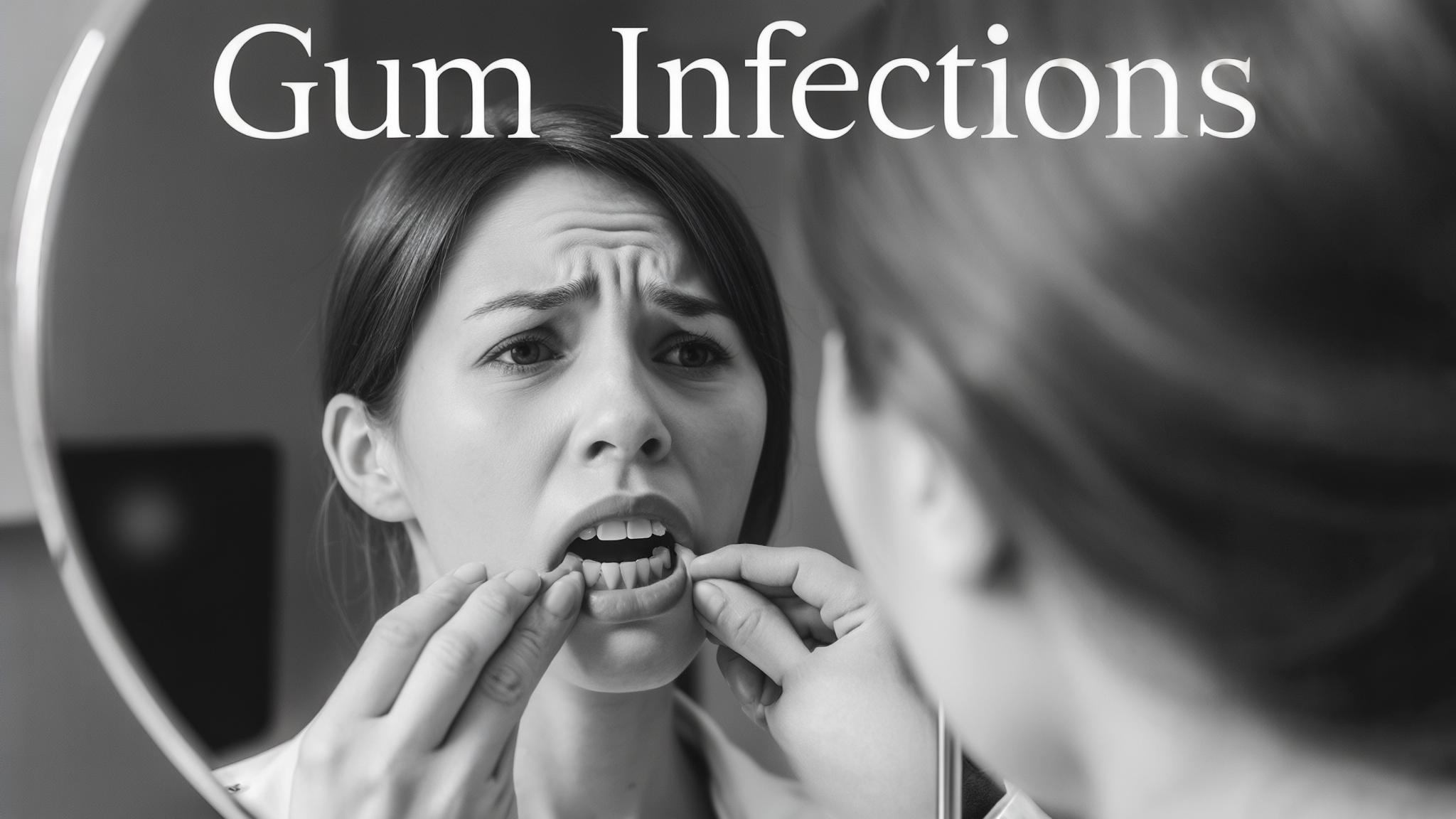Introduction
Imagine feeling a throbbing pain in your mouth, only to discover a small pocket of pus on your gums. This scenario might indicate a dental abscess, a common yet serious oral health issue. A dental abscess is a collection of pus that forms due to a bacterial infection. Recognizing the symptoms early is crucial to prevent complications and maintain oral health. This article aims to guide you through understanding gum infections, identifying their signs, and knowing when to seek professional help.
Understanding Gum Infections
Gum infections occur when harmful bacteria invade the tissues surrounding your teeth, leading to inflammation and pus formation. Bacterial infections are the primary culprits, often arising from periodontal disease, which affects the gums and bone supporting the teeth. Poor oral hygiene can exacerbate these conditions, allowing bacteria to thrive. Your immune system plays a vital role in oral health by fighting off these bacteria, but sometimes it needs a little help from good dental practices and professional care.
Signs and Symptoms of Gum Infections
One of the most alarming signs of a gum infection is the presence of pus. Pus is typically white, yellow, or greenish, and has a thick consistency. Its presence indicates that your body is fighting an infection, and it's essential to pay attention to this warning sign. Other symptoms include:
- Swelling and redness in the gums
- Pain or tenderness in the affected area
- Bad breath or a foul taste in the mouth
- Fever and other systemic symptoms
It's important to differentiate between mild symptoms, which might resolve with improved hygiene, and severe symptoms that require urgent dental care.
Types of Dental Abscesses
There are different types of dental abscesses, each with specific causes and symptoms:
Periapical Abscess
This type occurs at the tip of the tooth's root. It is usually caused by an untreated dental cavity or trauma to the tooth. Symptoms include severe toothache, sensitivity to hot and cold, and swelling in the face or jaw.
Periodontal Abscess
This abscess forms in the gum tissue and is often related to periodontal disease. It can cause swelling, pain, and bleeding gums. Impacted wisdom teeth can also lead to infections, creating a breeding ground for bacteria and resulting in abscess formation.
The Importance of Urgent Care
Ignoring a gum infection can lead to severe consequences. The infection can spread to surrounding tissues, causing more extensive damage, and in rare cases, lead to systemic complications like sepsis. Timely dental intervention is crucial for pain management and preventing further complications. Seeking professional help ensures that the infection is properly treated and does not recur.
Diagnosis of Gum Infections
A dentist will perform a clinical examination to assess the condition of your gums. Diagnostic imaging, such as X-rays, may be used to determine the extent of the infection. In some cases, a laboratory test, like a culture of the pus, may be necessary to identify the specific bacteria causing the infection.
Treatment Options
Immediate care focuses on relieving pain and controlling the infection. Antibiotics may be prescribed to combat bacterial growth, and pain management strategies will help ease discomfort. Dental procedures such as drainage of the abscess, root canal treatment, or tooth extraction may be necessary, depending on the severity of the infection. Follow-up care is crucial to ensure complete recovery and prevent recurrence.
Preventive Measures
Good oral hygiene is your best defense against gum infections. This includes regular brushing and flossing, along with routine dental check-ups. Lifestyle factors also play a role in gum health. A balanced diet rich in nutrients supports oral health, while avoiding tobacco products and managing stress levels can further protect your gums.
Conclusion
Recognizing the symptoms of gum infections early can prevent severe complications and maintain your oral health. Don't hesitate to seek prompt dental care if you notice any signs of infection. By maintaining good oral hygiene and being mindful of lifestyle choices, you can prevent dental emergencies and enjoy a healthy smile.
References
- American Dental Association: Gum Disease
- Mayo Clinic: Dental Abscess
- National Institute of Dental and Craniofacial Research: Periodontal Disease

